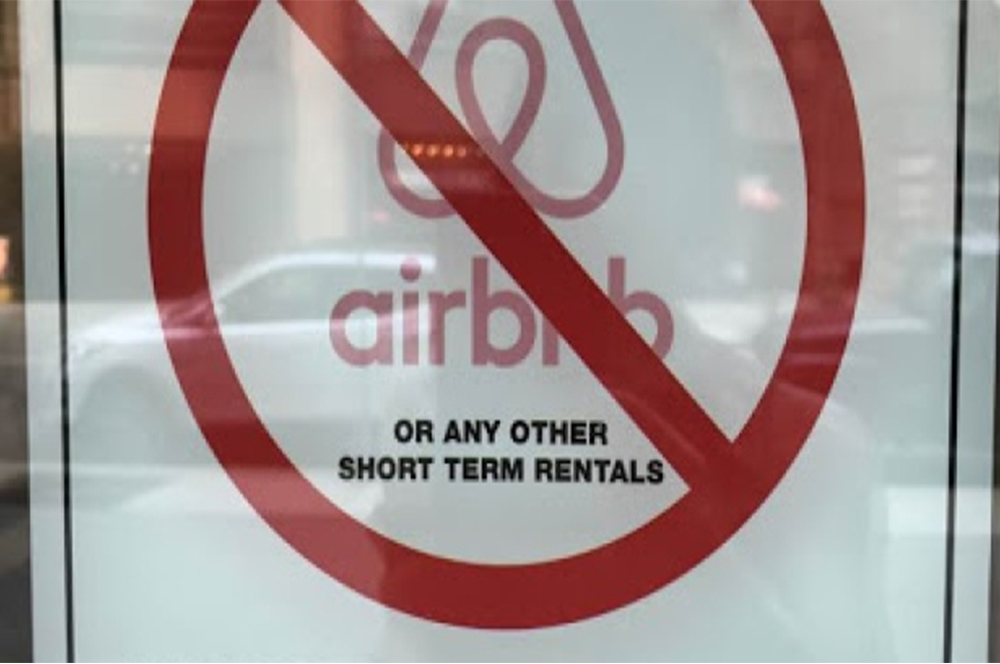Marie Simmonds is fixated on ferreting out illegal short-term rentals in Vancouver's Kitsilano neighbourhood, knowing her detective work does little to stop the onslaught.
And the city seems to ignore her.
"I've become this Airbnb vigilante," said Simmonds, who is irked by brazen hosts offering rooms from between $150 to $592 per night in a city that is short on rental stock.
A new McGill study says the bulk of the profit from the lucrative short-term rental industry is landing in the pockets of a few large-scale hosts. And world-wide, cities struggle to crack-down or enforce strict bans.
The study looked at Toronto, Montreal and Vancouver.
The study's lead author, David Wachsmuth, assistant professor in McGill's School of Urban Planning, said cities need to require platforms such as Airbnb to enforce regulations to rein in a rental gold rush that's tying up thousands of potential long-term rental homes.
City of Vancouver staff admit they can't follow up on many of the individual complaints, which city staff expect will double in number this year over last year's 144.
They've had more than 150 reports of illegal rentals so far this year.
"At this time it's full-on illegal," said Kathryn Holm, Vancouver's chief licensing inspector who said the city is in active discussions with Airbnb to find solutions.
According to the McGill study, in the past decade, the short-term rental business has exploded in Vancouver, where it grew from insignificant to an estimated 24,000 listings, earning $22-million this year.
A city of Vancouver data analysis, which took a snapshot in April, showed 6,000 active Vancouver listings on one day.
Meanwhile, a city report says Airbnb has become Vancouver's largest de facto hotel. In the past few years, Vancouver has scrambled to create controls.
For its part, Airbnb downplayed the report's conclusions.
In an email, spokesperson Lindsey Scully accused Wachsmuth of "manipulating" data and "misrepresenting" Airbnb hosts, who are 80 per cent families "middle class Canadian families" renting in-home units to "earn a bit of additional income to help pay the bills."
Proposed regulations are in the works and are expected to result in new rules by spring 2018.
That could free up between 1,000 and 4,000 units for rent, city staff and researchers estimate.
'Airbnb vigilante'
But Simmonds said the city must act now. She said she's shocked how easy it is to find illegal rentals.
She first noticed residents kept changing in a unit in a neighbouring building.
Since last week, she's found 15 more illegal rentals, all in towers where hosts will be warned, then fined up to $500 per week.
Property managers say many condo stratas ban rentals under 30 days.
City staff say complaints often revolve around fears of security risks, crowded parking spaces or visitors rolling in after late-night flights. The odd time there is a raucous party. Some unit owners are even surprised to discover their trusted tenant has listed a condo for rent to a third-party.
Simmonds tips off property managers and confronts hosts, who blast her for snooping.
"I tell them we have a housing crisis. You shouldn't be doing this," she said.
"The city acts like they are cracking down, but I am emailing the city daily and nobody calls me back. There's a lot of people doing it making a huge profit who don't want it to stop."
Many complaints ignored
City staff say they focus their limited inspectors on large operators or hosts who get multiple complaints
Vancouver is not the only city short of staff to regulate out-of-control short-term rentals, said Wachsmuth.
He said Airbnb and other short-term rental platforms need to enforce regulations themselves, as was done in Amsterdam where units can only be rented for 60 days each year, he said.
Other cities such as New York, which tried to crack-down on operators had less success, he said.
Wachsmuth also stands by his "number crunching," saying Airbnb is refusing to acknowledge the reality people can see from their condo balconies: a stream of revolving strangers taking up space that long-term renters are so hungry for.

